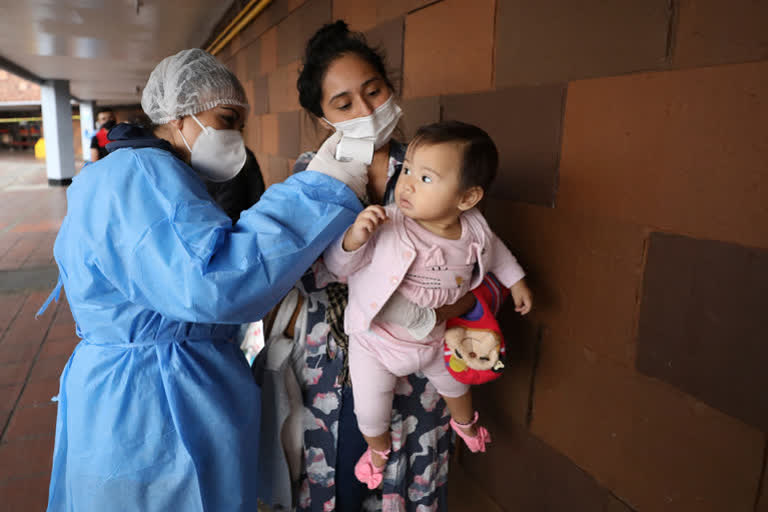Hyderabad: COVID-19 pandemic has dominated conversations in every household. Children are exposed to this state of affairs on a daily basis which is bound to bring about a high level of anxiety and stress in them. It can also impact the eating and the sleeping pattern in a few children.
The uncertainty experienced, break in the regular routine, physical exercises and interaction with the peers and significant others outside the family is posing challenges to cope emotionally.
It’s important to guard the child against too much of information exposure from the media or conversations at home.
Communicate the right information sensitively taking into account, the age and the understanding level of the child
Children are attuned to the emotional state of the parents and adults around. If they notice the adults being in a state of worry, it definitely increases their anxiety levels leading to challenging behaviours like acting out, excessive crying, arguing, incessant worry, increased headaches and increase in the meltdowns.
It’s important to acknowledge the emotional state of the child here rather than addressing it as a behaviour problem and create a space where children can freely talk about their feelings.
Reassure them that it’s fine to experience worry and that they will be safe with the precautions. This will help them with ways how to co regulate and respond rather than react.
Read: Caring for elderly people during COVID-19 pandemic
One can have a daily practise of writing down the things that you worry about and brainstorm how as a family you will work towards it as a team. Children can draw and name their worry monsters. When the child perceives the worry as external than his/her self, it encourages drawing strategies to work on the problem
A visual structure to you and your child’s daily routine and a to do list for every day is important as it ensures a certain predictable pattern, reduces the anxiety and gives a scope to engage the child in constructive independent activities.
Do routine tasks differently; add meaning - play board games, listen to music, watch a movie together, add fun activities, involve humor.
Engage the child in your daily chores by sharing the responsibilities as per each one’s skills and ability. It’s a good time to work on the functional life skills like, arranging the laundry, cooking etc basically involving them in day to day functioning skills.
Introduce a variety of indoor physical exercises and dance movements, make a still video or a silly dance.
Lockdown is a good time to harness a hobby or to learn a new one.
Reading a short story with the child and discussing the characters and what skills they bought to the story, how they struggled and responded can build in resilience skills in children in a state of crisis
Mindfulness is making the child aware about what they eat, their emotions, physical arousal, their breathing, and how they think.
This will bring about more compassion, gratitude and improve the concentration. It is a life skill which is very important for the mental health in today’s challenging world, also teaching them to live in the present against being clouded by the fear of an uncertain future.
Also, read: ETV Bharat Impact: Elderly couple gets timely treatment with the help of police



